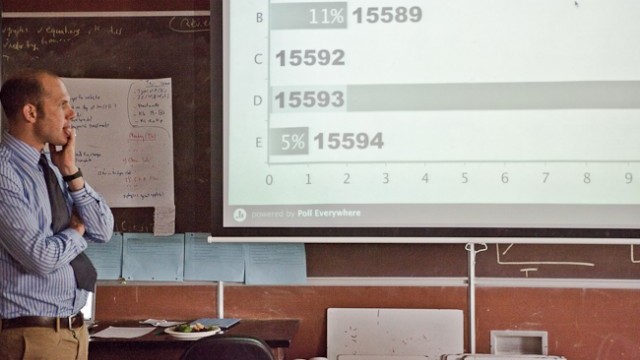
Education technology businesses have come up with hundreds, if not thousands, of products meant to make teachers' lives easier and improve student achievement. Most products bite off a piece of the education puzzle, trying to solve one corner of a complex web. Four of these businesses -- MasteryConnect, Illuminate Education, Pearson, and Imagine K12 -- were represented on a panel last week hosted by VLAB, a partnership between MIT and Stanford.
“The goal is to understand immediately if a student understood that concept and to be able to re-teach it if necessary,” said Mick Hewitt, CEO and co-founder of MasteryConnect. MasteryConnect allows teachers to track student’s mastery of concepts through various kinds of formative assessments including quizzes, oral responses, or even scanning an image of an assignment.
“We’ve tried to look at how schools and school systems can predictably accelerate student achievement,” said Scott Drossos, senior vice-president of Pearson’s 1:1 Learning program. Pearson has actively acquired companies that can help the Britain-based conglomerate move from a legacy textbook publisher into the era of digital education content.
The panelists all agreed that the transition to Common Core has helped speed the integration of technology into the classroom and spurred their business. “It’s providing a lot of opportunity for us because schools with older systems are seeing that they have to change their grade books,” said Lane Rankin, CEO Illuminate Education. Illuminate has created a Student Information System that draws in many strands of data from disparate sources and displays them on a simple teacher dashboard, with parent portals and an integrated grade book aligned with the new standards.
While the tools developed by these companies and the hundreds of others not represented on the panel can be useful to teachers, another panelist --David Reilly, a former teacher and principal -- questioned whether any of these costly technologies will actually transform learning. The entrepreneurs on the panel offered a vision for the future of education that focuses on data and assessments, but was somewhat at odds with the on-the-ground experience and goals expressed by Reilly.

